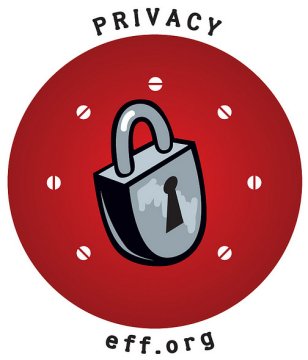EFF's New Privacy Scorecard: Twitter wins, Foursquare loses


With this week's revelation that privacy activists are responsible for Facebook allowing input on its upcoming Data Use and Responsibilities changes, the EFF's freshly updated Privacy Scorecard is more relevant than ever.
Still champs: Twitter and Google
Last year the overall winners were Twitter and Google - this year, Twitter went even further for user privacy and protecting its users' rights to become the breakout privacy star. Google
EFF's report examines 18 companies' terms of service, privacy policies, public representations, advocacy, and courtroom track records, awarding them gold stars for best practices in categories like "tell users about government data demands" and "fight for user privacy in courts."
Companies are given gold stars in four categories.
The first two categories ask if you will be given a chance to defend yourself - or if the company will just turn your information over without a peep.
The other two categories ask where the company stands in regard to privacy law: Do they fight for user privacy in court or Congress?
All companies get data requests from the government. The overall question the EFF asks is, “When the government comes knocking, who’s got your back?”
- See: Who Has Your Back 2012; Who Has Your Back 2011
- Read also: Amazon, Google and Twitter Top EFF’s Privacy Scorecard
Standing ovations for Twitter and Dropbox
This year the biggest winner is Twitter: the company went above and beyond fighting on behalf of its users rights, going from two stars to three-and-a-half.
They were followed by Dropbox, which was the center of a privacy disaster at the time of last year's EFF report card. Dropbox clearly overcame its troubles, and triumphed over last year's abysmal single star to come in with three full gold stars.
Still dogs: Skype, Myspace and Verizon
Last year Skype, Myspace and Verizon started out with a worrying zero stars - and this year, alarmingly, we see no changes.
While many people might be stifling a giggle even seeing Myspace on the list, don't forget that they may still have some of your (or your loved ones) communication and personal information in its files.
Skype and Verizon emerge as a concern after a year of no positive privacy changes for two communication companies that in particular seem like ripe targets for government user data trolling.
"Online service providers are the guardians of some of your most intimate data – everything from your messages, to location information, to the identities of your family and friends,"
-EFF Senior Staff Attorney Marcia Hofmann.
Eye-opening performances for newcomers
A number of companies were added to the heavy-hitter lineup: readers will appreciate seeing more companies they trust sensitive information to on the list, notably Foursquare, Loopt, Sonic.net and SpiderOak.
Foursquare, undisputedly the biggest and most popular location-based social networking site for mobile users, has entered with zero stars.
According to the EFF, location information is increasingly being sought by the government - as a Foursquare user I am forced to wonder, can Foursquare be trusted?
The EFF writes,
Some of the new companies we’ve added to the report are neck-and-neck with the competition. LinkedIn and SpiderOak, like Dropbox, have each earned recognition in three categories: promising to inform users about government access requests, transparency about how and when data goes to the government, and standing up for user privacy in Congress.
Delightfully, Sonic.net - an indie telecom and ISP (among other things) - entered the report card with four fat gold stars, setting a keen example for ISPs everywhere.
No news isn't necessarily good news: Apple and AT&T
I'm sure you've heard that Facebook and Apple have "friended" each other and aren't denying reports that the new release of Apple's iOS will have deep integration with Facebook.
The integration will see smoother, and therefore increased, data sharing from apps in iOS between Apple apps and the social network giant. And if app privacy disasters of the past (ahem, Path) have any significance to you, then this could signal a whole new avenue of murkily defined data sharing - or worse.
So while Facebook surprisingly increased bu a half star in the EFF's report, it's a prime time for staying aware about Apple's lack of one-star movement on the chart.
Apple is also under fire for allegedly giving backdoor spying access to the Indian government.
AT&T, notorious for once allowing government spying on its users, also showed no progress: its lone star is cold comfort.
The EFF concluded,
The overall poor showing of AT&T, Verizon and Comcast, who provide Internet connectivity to so many people, is especially troubling.
In addition, Amazon is entrusted with huge quantities of information as part of its cloud computing services and retail operations, yet does not produce annual transparency reports, publish a law enforcement guide, or promise to inform users when their data is sought by the government.
We have seen myriad examples of the government seeking access to sensitive user location data without proper judicial oversight.
We hope that next year Loopt and Foursquare will take steps to improve their practices, given the sensitivity of location information.
EFF's Who Has Your Back privacy scorecard 2012: